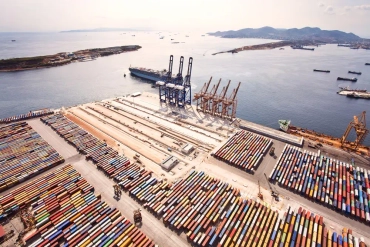
How to import from the United States in 2020?



One can give their business a serious push through using the United States as a sort of launchpad into new beneficial markets.
However, the process of how to import from the United States is not without its intensive regulations, costs, and processes. In order to build an import campaign that suits your home country and the United States’ regulations, a bit of research is necessary. It’s not incredibly difficult, however. To be fair, the paperwork involved in exporting from the U.S. is fairly minimal, whatever you choose sea freight or air freight.
In this article, we’re going to break down the basics of importing from the United States
1. Mind the Laws and Regulations for Importing From the U.S.
You may be wondering, “Do I need a license importing from the United States?”
The answer is (usually) no. 95% of items that are exported from the U.S. to a foreign buyer do not require a specific export license.
Regulations that relate to importing from a foreign country largely depend on the country that will be receiving the products. To find out more, look into your country’s chamber of commerce or customs department to learn about what can and can not come from the U.S. (importer of record).
Understanding duties importing from the country of origin is also very important. If your country and the U.S. have a trade agreement, then your products likely won’t be subject to full duty. If there is no trade agreement between the U.S. and your country, you may not be able to get any exemptions. If you want to learn more about taxes (duty tax, duty rates…) when importing from the United States, do some digging around at the DHS Customs Duty Information page. Check all regulations considering customs and border protection to avoid delays or extra costs.
2. Choose the Right American Suppliers
Getting a solid trading partner is key when it comes to international trade. Luckily, this isn’t so hard to do with American suppliers. English is a worldwide spoke language, you won’t have to deal with language barriers, intense cultural differences, high import duties, high shipping costs, or difficult customs broker.
There are a variety of ways to find a good American supplier. Websites like ReferenceUSA is one of the most comprehensive databases out there for finding American suppliers. You may have to get in touch with your local library to gain access, but it’s worth it.
You can also network with other similar importers and see where they are getting their product supply from in the U.S.
3. Focus on the Sales Contracts
A comprehensive import sales contract is completely necessary when it comes to making a supplier-importer deal with an American supplier.
This is for both of your benefits, as it will protect you legally in the case of a contract breach or product mishap. A contract will out the exact nature of the product being produced, the compensation, and any other agreements involved. It’s recommended to seek out a professional contract writer or lawyer to fully detail the clauses in the contract.
Including an Incoterm in the sales contract will give a clear understanding of responsibilities if something goes wrong.
4. Choose How You Will Transport Internationally
You have a few choices when it comes to transport capital goods or consumer goods from the U.S. Look into the shipping rates for LTL shipping services and ocean-based freight via iContainer. You may also want to consider air freight as well. This all comes down to** where in the U.S. your supplier is located and where in the world your receiving** country is.
Be mindful of transit times as well. Depending on where your country is located and the port of entry, picking an American supplier could amp up your transportation times.
Shipping from one country to another can be a bit complex. As long as importers are smart and follow their country’s import regulations and select a supplier that is trustworthy, then there should be no issue. In the wake of COVID-19, much of how we typically operate as importers has changed. Flights and travel between countries are even more restricted, and the economy is in a very unstable place right now. Luckily, smart importers can educate themselves on how to properly ship their products, even during a pandemic. iContainer’s blog is a great place to start when learning about freight, shipping, regulations, taxes, and more.
Related Articles


